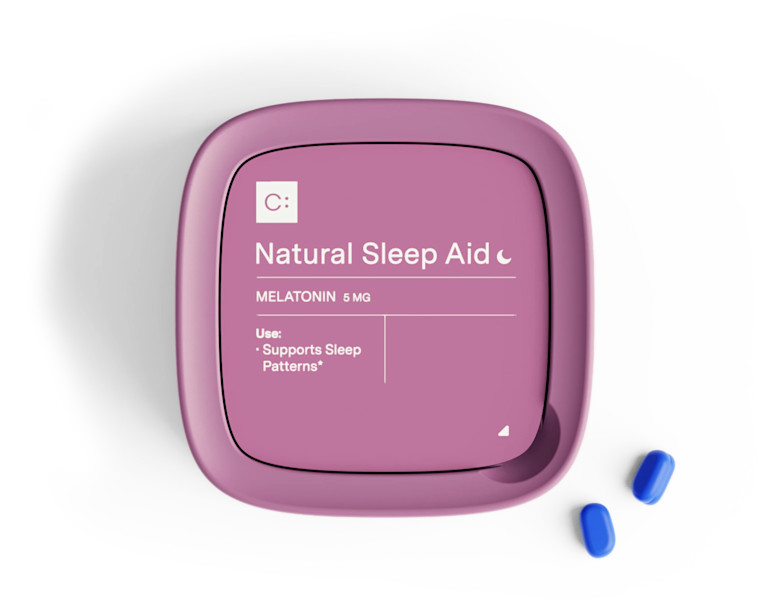In recent years, the use of medications to manage mental health conditions and promote sleep has become increasingly common. Two such medications that often come up in discussions are Lexapro and Melatonin. Lexapro is a prescription medication commonly used to treat depression and anxiety disorders, while Melatonin is a widely available over-the-counter supplement used to regulate sleep. This article aims to provide a comprehensive analysis of the effects of Lexapro and Melatonin on both mental health and sleep regulation.
Understanding Lexapro and Melatonin
What is Lexapro?
Lexapro, also known by its generic name escitalopram, is a selective serotonin reuptake inhibitor (SSRI) that works by increasing the amount of serotonin available in the brain. Serotonin is a neurotransmitter that plays a crucial role in regulating mood, emotions, and sleep patterns. By increasing serotonin levels, Lexapro helps alleviate symptoms of depression and anxiety, such as persistent sadness, irritability, and excessive worry.
What is Melatonin?
Melatonin, on the other hand, is a hormone naturally produced by the pineal gland in the brain. It helps regulate the sleep-wake cycle and plays a key role in promoting sleep. Melatonin levels rise in the evening, signaling to the body that it's time to sleep, and decrease in the morning to promote wakefulness. Outside of the body, Melatonin is also available as a supplement, often used to address issues with sleep, such as insomnia or jet lag.
When it comes to the relationship between Lexapro and melatonin, it's important to understand that they have different mechanisms of action. While Lexapro primarily focuses on increasing serotonin levels in the brain, melatonin directly influences the sleep-wake cycle. However, there may be situations where these two substances can work together to improve sleep quality and overall well-being.
For individuals who are prescribed Lexapro for depression or anxiety, sleep disturbances can be a common side effect. This is where melatonin can come into play. By taking melatonin as a supplement, it can help regulate the sleep-wake cycle and promote better sleep, potentially counteracting the sleep-related side effects of Lexapro. It's important to note that combining medications or supplements should always be done under the guidance of a healthcare professional to ensure safety and effectiveness.
The Science Behind Lexapro and Melatonin
How Does Lexapro Work?
When a person is experiencing depression or anxiety, their brain may have lower levels of serotonin. Serotonin is a neurotransmitter that plays a crucial role in regulating mood. It is often referred to as the "feel-good" chemical because it helps to promote feelings of well-being and happiness. However, in individuals with depression or anxiety, the brain may not have enough serotonin available to effectively regulate mood.
This is where Lexapro comes in. Lexapro is a selective serotonin reuptake inhibitor (SSRI), which means it works by blocking the reuptake of serotonin. Reuptake is the process by which the brain reabsorbs neurotransmitters after they have been released. By blocking the reuptake of serotonin, Lexapro helps to keep more serotonin available in the brain. This increased availability of serotonin allows for better regulation of mood and can alleviate symptoms associated with depression and anxiety.
How Does Melatonin Work?
Melatonin, on the other hand, works in a different way compared to Lexapro. Instead of altering brain chemistry, melatonin directly interacts with receptors in the brain that regulate the sleep-wake cycle. These receptors are located in the suprachiasmatic nucleus (SCN) of the brain, which is responsible for controlling the body's internal clock.
When it starts to get dark outside, the SCN receives signals from the eyes that trigger the release of melatonin. This release of melatonin signals to the body that it is time to sleep. In individuals with sleep disorders or difficulty falling asleep, the supplemental form of melatonin can be used to mimic the naturally occurring hormone. By taking melatonin supplements, individuals can help regulate their sleep-wake cycle, improve sleep quality, and increase the duration of sleep.
It is important to note that while Lexapro and melatonin can both be effective in their respective areas, they have different mechanisms of action and are used to address different issues. Lexapro primarily targets depression and anxiety by increasing serotonin levels, while melatonin focuses on improving sleep quality and quantity by regulating the sleep-wake cycle. It is always recommended to consult with a healthcare professional before starting any medication or supplement to ensure it is appropriate for your specific needs.

Interactions Between Lexapro and Melatonin
Potential Benefits of Combining Lexapro and Melatonin
Since Lexapro and Melatonin have distinct mechanisms of action, some individuals may consider using them together to address both their mental health condition and sleep issues. The benefits of combining Lexapro and Melatonin vary depending on the individual and their specific circumstances. However, it is crucial to consult with a healthcare professional to ensure that the combination is safe and appropriate for the individual's needs.
When Lexapro, an antidepressant medication, is combined with Melatonin, a hormone that regulates sleep-wake cycles, it may offer a comprehensive approach to managing mental health and sleep disturbances. Lexapro works by increasing the levels of serotonin, a neurotransmitter associated with mood regulation, while Melatonin helps regulate the body's internal clock and promote sleep. By combining these two medications, individuals may experience improved mood and better sleep quality, leading to an overall enhanced sense of well-being.
Possible Risks and Side Effects
While Lexapro and Melatonin are generally safe medications, they are not without potential risks and side effects. For Lexapro, common side effects may include nausea, drowsiness, insomnia, and sexual dysfunction. These side effects are typically mild and tend to subside as the body adjusts to the medication. However, it is important to note that everyone's response to medication can vary, and some individuals may experience more severe side effects.
Similarly, when used as a supplement, Melatonin is generally well-tolerated, but some individuals may experience mild side effects such as headache, dizziness, or daytime drowsiness. These side effects are usually temporary and resolve on their own. It is worth mentioning that Melatonin supplements should be used with caution, as their long-term effects are not yet fully understood.
As with any medication or supplement, it is essential to discuss these potential risks with a healthcare professional. They can provide personalized guidance based on an individual's medical history, current medications, and specific needs. Additionally, healthcare professionals can monitor for any potential drug interactions or contraindications that may arise when combining Lexapro and Melatonin.
The Role of Lexapro and Melatonin in Mental Health
Lexapro's Impact on Mental Health
Lexapro, an antidepressant medication, has been widely studied and has demonstrated effectiveness in managing various mental health conditions. Clinical trials have shown that Lexapro can significantly reduce symptoms of depression and anxiety, leading to improved quality of life for many individuals. It works by increasing the levels of serotonin, a neurotransmitter that plays a key role in regulating mood. By enhancing serotonin activity in the brain, Lexapro helps to alleviate feelings of sadness, hopelessness, and anxiety.
It is important to note that while Lexapro can be highly beneficial for some individuals, it is not a one-size-fits-all solution. Each person's response to medication can vary, and it may take time to find the right dosage and treatment plan. Collaborating closely with a healthcare professional is crucial to determine the appropriate course of action. They will evaluate your symptoms, medical history, and any potential interactions with other medications to ensure that Lexapro is the right choice for you.
Melatonin's Impact on Mental Health
Although primarily known for its sleep-regulating properties, melatonin has also shown promise in the field of mental health. Melatonin is a hormone naturally produced by the pineal gland in the brain, and it plays a crucial role in regulating the sleep-wake cycle. However, recent studies have suggested that melatonin may have mood-stabilizing effects and potentially aid in reducing symptoms of certain mental health conditions, including depression and bipolar disorder.
Research has shown that individuals with mood disorders often experience disruptions in their sleep patterns, such as insomnia or irregular sleep-wake cycles. By regulating the sleep-wake cycle, melatonin may help to improve mood and reduce symptoms of depression. Additionally, melatonin's antioxidant properties may also contribute to its potential mental health benefits.
However, it is important to note that more research is required to fully understand melatonin's impact on mental health and its potential as a standalone treatment. The existing studies have shown promising results, but further investigation is needed to determine the optimal dosage, duration of treatment, and potential side effects. As with any treatment, it is essential to consult with a healthcare professional before incorporating melatonin into your mental health regimen.
The Role of Lexapro and Melatonin in Sleep Regulation
How Lexapro Affects Sleep
As Lexapro helps regulate serotonin levels in the brain, it can also impact sleep patterns. In some cases, Lexapro may cause drowsiness or fatigue, which could act as a sleep aid. On the other hand, some individuals may experience insomnia as a side effect of Lexapro. If sleep disturbances occur, it is essential to discuss them with a healthcare professional to determine the best course of action.
How Melatonin Affects Sleep
Melatonin is well-known for its role in promoting sleep. As a supplement, it can help regulate the sleep-wake cycle, making it easier to fall asleep and stay asleep throughout the night. However, it is important to note that melatonin is not a sedative and should not be used as a long-term solution for sleep disorders. Regular sleep hygiene practices, such as creating a conducive sleeping environment and maintaining a consistent sleep schedule, should always be prioritized.
In conclusion, Lexapro and Melatonin are two medications that can have a significant impact on both mental health and sleep regulation. Lexapro can help manage symptoms of depression and anxiety, while Melatonin can aid in promoting healthy sleep patterns. However, it is essential to collaborate closely with a healthcare professional to determine the most appropriate treatment plan and to assess any potential interactions or side effects. Ultimately, individualized care and thorough medical guidance are key to achieving the best possible outcomes when using these medications.











